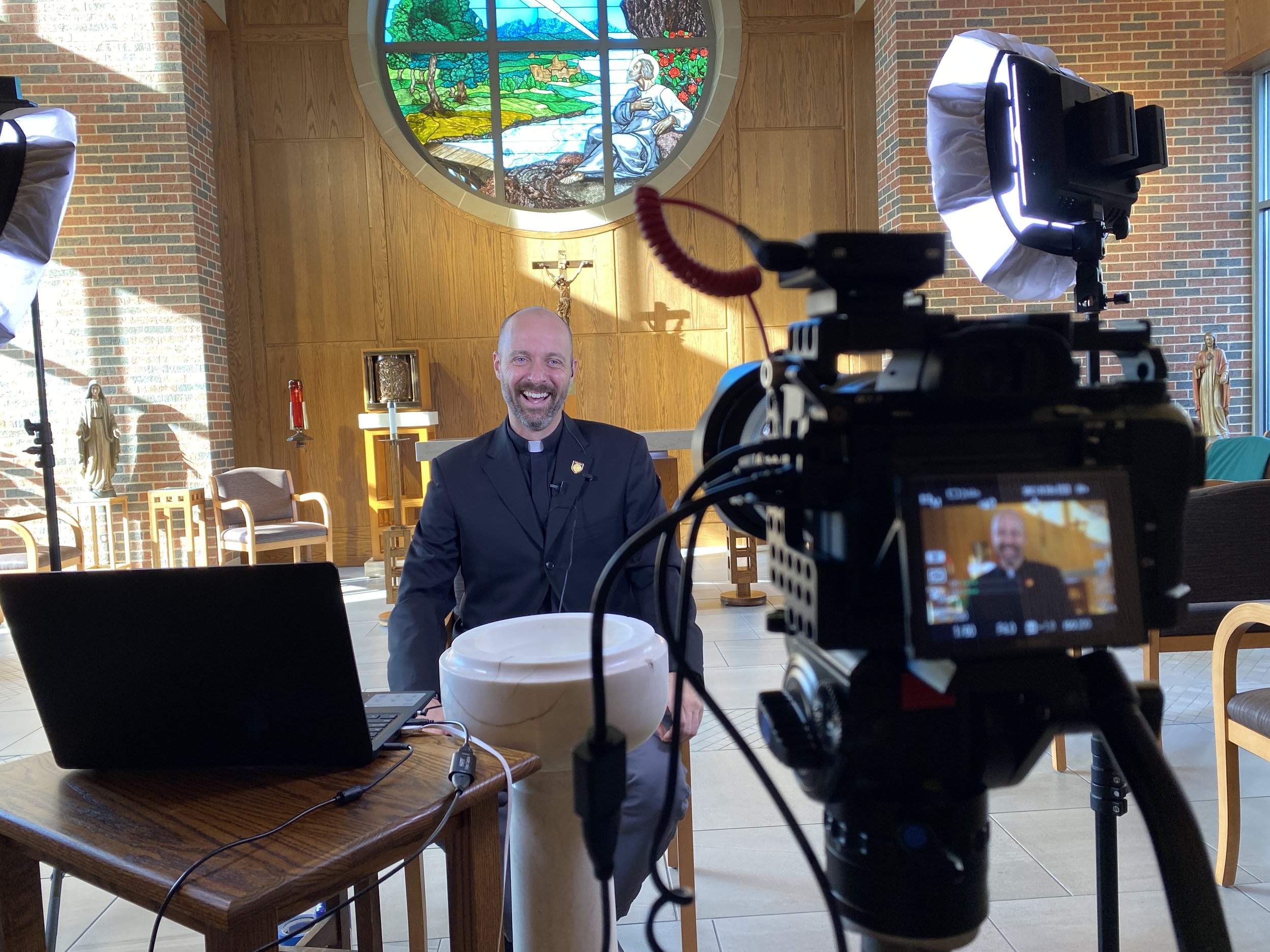Interviews can be a vital component of any video production. They provide a platform for experts, witnesses, or people with first-hand experiences to share their insights and perspectives on a particular subject. However, conducting an interview is not just about asking questions and recording responses. There's more to it than meets the eye. In this article, I’ll delve into some less obvious and more obscure tips that will help you conduct better interviews and produce more engaging and informative videos. From establishing a relaxed atmosphere to avoiding monotony and guiding the conversation, these tips will make a difference in your interview process and final product.
Interview for international television.
It's important to keep in mind that these tips may not work for everyone being interviewed. For example, below I discuss how it is not always beneficial to provide questions beforehand, yet this may cause stress to a small number of individuals who prefer to have a clear understanding of the questions and how to answer them before filming begins. This level of preparation can result in polished, but sometimes stiff, responses. Yet, from my extensive experience, I have found that minimal preparation can lead to more organic and engaging responses.
1) Relaxed Atmosphere: Let the interviewee know that the interview is just a casual conversation, even if the production relies on their answers. This approach helps the interviewee feel at ease and reduces any pressure they may feel about their role in the success of the production.
2) Best Footage Guaranteed: Assure the interviewee that the final product will be carefully edited to make them look and sound their best. Emphasize that if the footage does not meet the desired standards, it will not be used. This will help the interviewee feel confident and worry-free.
3) Casual Conversation: If the interviewee requests to see the questions before filming begins, a casual response could be "We're just going to have a conversation, but don’t worry as the topic will be around your area of expertise." For many, this approach can make the interviewee feel more relaxed and less formal.
Telling the story of a non-profit organization.
4) Short and Concise Questions: During an interview, video production teams usually aim to capture short, concise sound bites. To achieve this goal, it's best to ask short and to-the-point questions. If the interviewer asks a lengthy question, due to human nature, the response is likely to be lengthy as well.
5) Coaching Consideration: In some cases, the person being interviewed may need guidance, such as speaking in complete sentences or not looking directly at the camera. Correcting them during the interview can sometimes be distracting and cause them to become nervous. It's important to assess whether the interviewee requires coaching or not. If necessary, consider coaching them after the interview, and then redoing segments that could be improved. This decision should be based on the individual's performance and how it affects the overall outcome.
6) Mimic Surroundings: People naturally imitate their surroundings. If the interviewer speaks softly, the response will likely be soft, and if the interviewer exudes happiness and joy, the interviewee will likely respond in a similar manner. Keep in mind the desired tone of the answers when formulating your questions.
7) Lighthearted Atmosphere: As the director of photography, I like to create a lighthearted atmosphere during equipment setup by joking or simply being more casual with both the producer and interviewee. This helps set the mood that the interview is a fun experience, even if the subject matter is serious. Doing so can help everyone relax. If you are the producer, consider communicating your desired behavior to the video production team before the interviewee arrives.
8) Don’t discuss the subject before cameras are rolling: Engaging in small talk before the interview can help create a comfortable atmosphere, but it's important to avoid discussing the subject of the interview. This is because valuable sound bites may be shared before the camera starts rolling that may not be as impactful the second time around.
9) Avoid One-Word Answers: When conducting an interview, try to avoid asking questions that have a simple "yes" or "no" answer. If you do receive this type of response, a useful follow-up question is "Why?" as it prompts further explanation.
10) Simple Questions Lead to Valuable Answers: To get the most valuable information and insights, consider asking questions that may seem simple or even "dumb." These questions can sometimes lead to basic yet crucial answers that can inform the viewer and provide context to the subject at hand.
Employee Testimonial
11) Balancing Interruptions: Interrupting a lengthy or off-topic response can offer several benefits such as saving time for all involved, streamlining the editing process, and allowing for follow-up questions and feedback. However, it's essential to consider the etiquette aspect, as it may be perceived as impolite depending on the individual being interviewed. The decision to interrupt should be made based on the dynamics of the situation and the personality of the person being interviewed.
12) The Power of Eye Contact: Establishing and maintaining eye contact during an interview not only fosters connection with your subject, but also encourages open and honest communication, leading to a more engaging and genuine conversation. Be mindful not to break eye contact too often by taking notes or looking around, as this can be distracting. While it's not necessary to stare directly into their eyes the entire time, giving your full attention is crucial for a successful interview.
As we wrap up, at Creative Images, we prioritize the success of your video production. Our team is always willing to take notes and provide valuable insights to ensure the final product is comprehensive and meets your expectations. Additionally, if needed, we are also willing to step in and ask follow-up questions to ensure the interviewee provides complete information for the post-production process.
We've found that creating a comfortable environment for the interviewee is essential for a successful interview. Keeping the number of people in the room to a minimum can help ease their nerves. If others need to be present, having them out of the interviewee's line of sight can prevent distractions and keep the focus on the interviewer.
Thank you for considering Creative Images for your video production needs.



